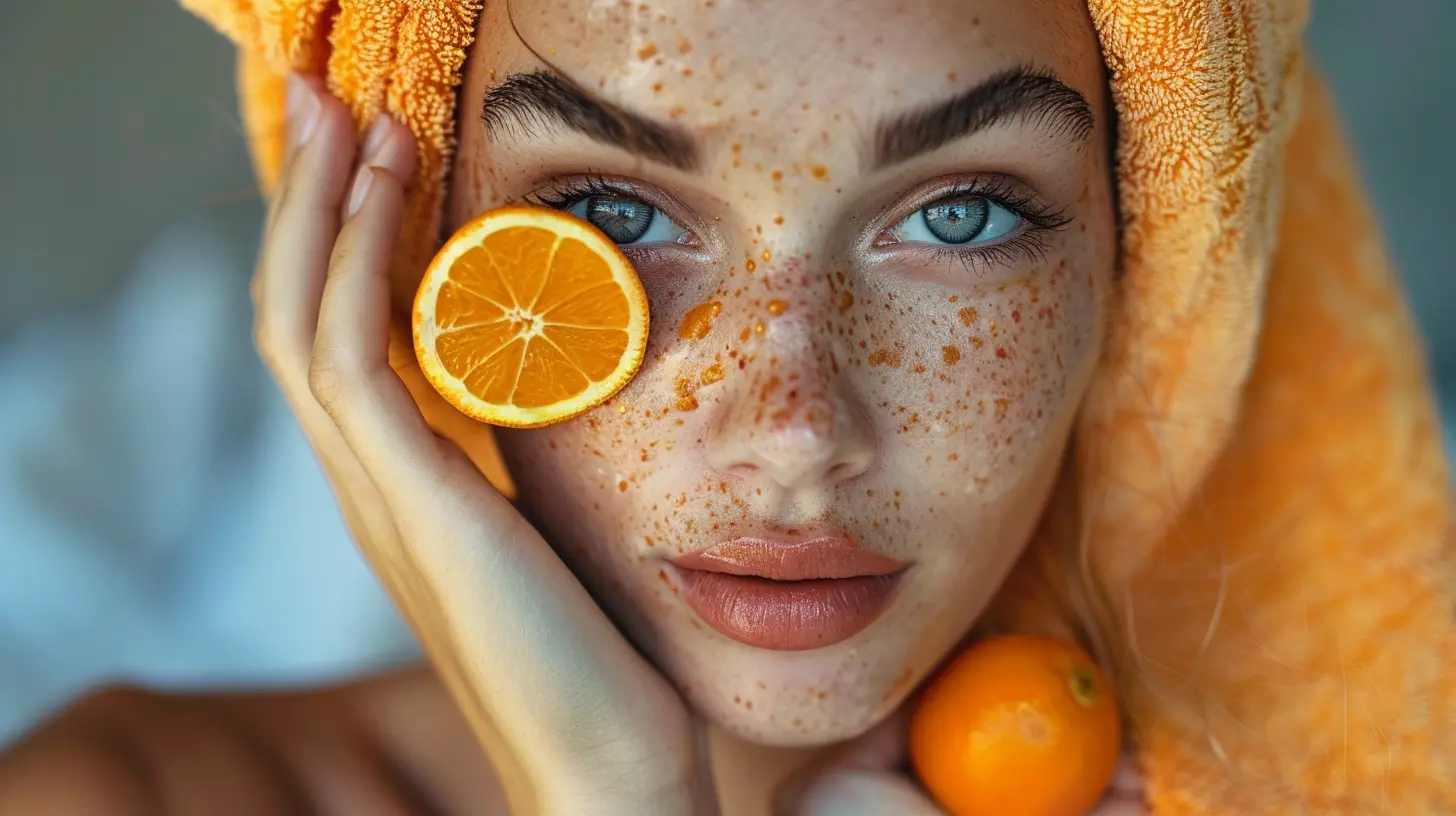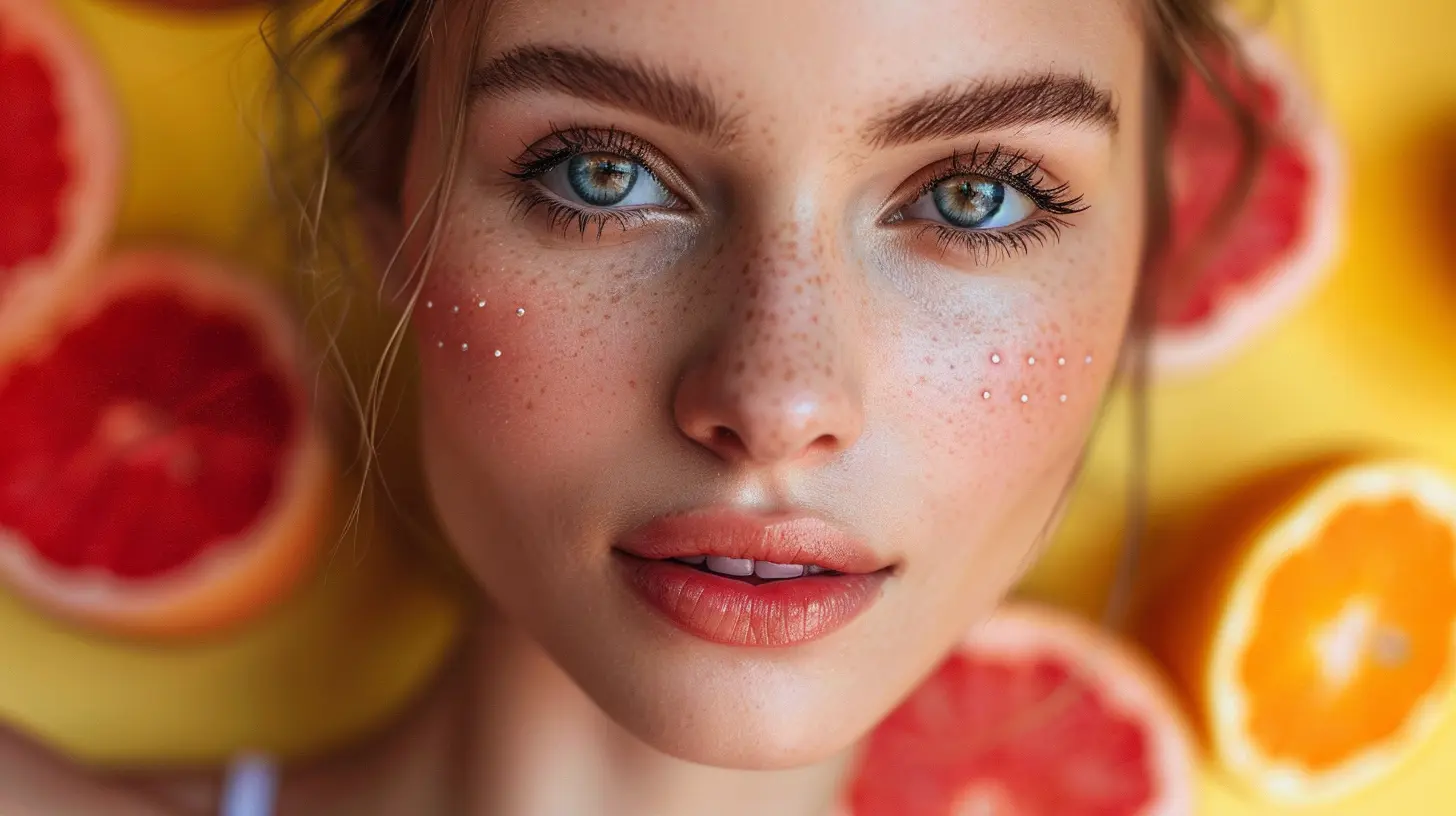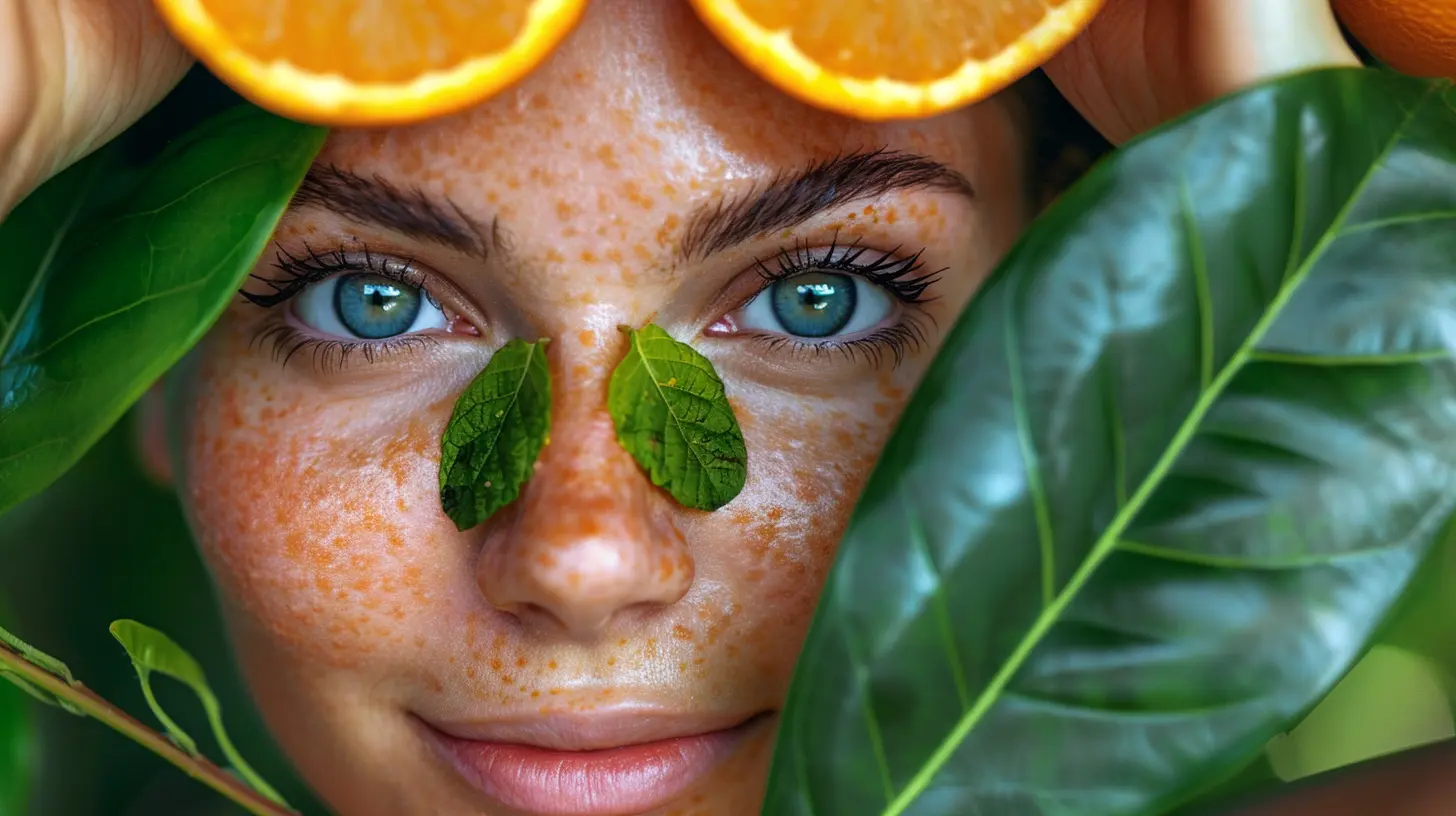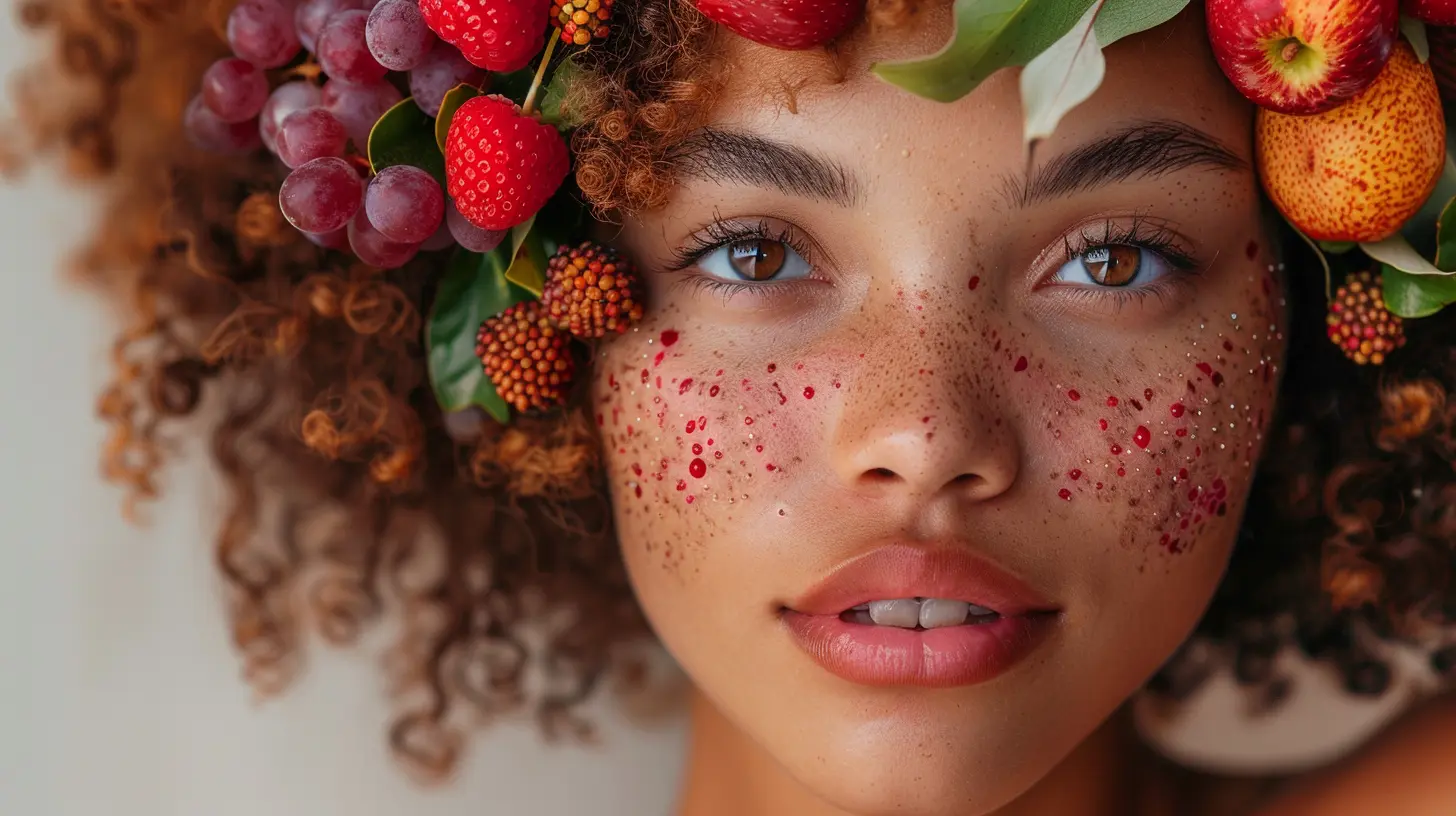The Role of Vitamins in Skin Health: What You Need to Know
16 November 2025
Let’s be honest — we all want that radiant, healthy-looking skin that glows without needing a ton of highlighter or clever filters. But what if I told you the magic for incredible skin isn’t just in your favorite moisturizer or that pricey serum sitting on your bathroom shelf? Yep, vitamins — those tiny nutrients we often associate with general health — play a massive role in how your skin looks, feels, and even heals.
In this no-fluff guide, we’re diving deep into the role of vitamins in skin health. Whether you're battling acne, dryness, aging, or dullness, understanding how key vitamins work can help you level up your skin game naturally — from the inside out.
Why Vitamins Matter for Your Skin
So, first things first — why should you even care about vitamins when it comes to your skin?Think of your skin like the outer armor of your body. It’s your first defense against the sun, pollution, harsh weather, and even your own bad habits (hello, late-night pizza cravings). Vitamins help maintain your skin's barrier, promote healing, slow down aging, and keep breakouts in check.
Without the right nutrients, your skin can become dull, wrinkly, dehydrated, or worse — prone to chronic conditions like eczema, psoriasis, or severe acne.
Let’s break it down by individual vitamins and how they each play their part in keeping your skin happy and healthy.
Vitamin A: The Smoother and Wrinkle Fighter
Ever heard of retinol? Well, that’s a derivative of Vitamin A. This powerhouse vitamin works like a charm when it comes to skin renewal. It helps shed dead skin cells, stimulates collagen, and fights signs of aging like fine lines and uneven texture.What It Helps With:
- Reduces fine lines and wrinkles- Unclogs pores (important for acne-prone peeps!)
- Enhances skin tone and texture
Best Sources:
- Sweet potatoes- Carrots
- Spinach
- Eggs
- Liver (if you’re into that)
Pro tip: If you're using Vitamin A topically (like in serums or creams), make sure to wear sunscreen. It's a bit of a drama queen and doesn’t get along well with the sun.
Vitamin C: The Brightener and Collagen Booster
If Vitamin A is the anti-aging queen, Vitamin C is her glow-getting sister. This antioxidant helps brighten your skin, even out pigmentation, and boost collagen (that magical protein that keeps your skin firm and youthful).Plus, it helps fight free radicals — those pesky molecules that speed up aging caused by sun and pollution.
What It Helps With:
- Brightens complexion- Fades dark spots and hyperpigmentation
- Stimulates collagen production
- Fights oxidative stress
Best Sources:
- Oranges- Strawberries
- Bell peppers
- Broccoli
- Kiwi
You can also find it in serums — and yes, layering it under your sunscreen? Chef's kiss.
Vitamin E: The Healer and Moisturizer
Vitamin E is another antioxidant hero, and it works hand-in-hand with Vitamin C. Think of it as your skin’s bodyguard — helping soothe inflammation, heal scars, and lock in moisture. Dry, flaky skin? This is the one you need.What It Helps With:
- Protects against UV damage- Moisturizes and soothes dry skin
- Speeds up healing from wounds or acne scars
- Reduces itching and irritation
Best Sources:
- Almonds- Sunflower seeds
- Avocados
- Olive oil
- Spinach
Heads-up: Taking too much Vitamin E as a supplement can actually be harmful. Stick to food sources or topical applications unless your doc says otherwise.
Vitamin D: The Sunshine Vitamin
Ever noticed how your skin looks a bit better after spending some time outdoors? That’s partly because of Vitamin D. It supports skin cell growth, repair, and metabolism. Plus, it can help prevent infections and inflammatory skin conditions like eczema and psoriasis.What It Helps With:
- Promotes skin cell regeneration- Helps manage inflammatory skin disorders
- Supports immune system (which plays a role in preventing acne)
Best Sources:
- Sunlight (your skin makes Vitamin D when exposed to UVB rays)- Fatty fish like salmon and mackerel
- Fortified dairy
- Egg yolks
Remember, moderation is key — too much sun isn’t a great idea either.
Vitamin K: The Unsung Hero
Vitamin K doesn’t get as much attention in the skincare world, but it plays an important role, especially when it comes to healing and reducing dark circles. It's often found in creams meant to reduce under-eye puffiness and post-surgery bruising.What It Helps With:
- Heals wounds and bruises- Reduces dark under-eye circles
- Improves stretch marks and spider veins
Best Sources:
- Kale- Spinach
- Broccoli
- Lettuce
A little goes a long way — and you’ll usually get enough through your diet if you're eating plenty of greens.
B Vitamins: The Hydration Crew
B vitamins, especially B3 (niacinamide) and B5 (pantothenic acid), play crucial roles in skin hydration, reducing redness, and improving skin texture. They’re like the backup dancers — not always in the spotlight but totally essential.What It Helps With:
- Hydrates dry, irritated skin- Reduces redness and blotchiness
- Strengthens the skin barrier
- Helps with acne and rosacea
Best Sources:
- Whole grains- Eggs
- Legumes
- Nuts
- Bananas
Niacinamide is also a trendy ingredient in skincare products right now, and for good reason — it works without being irritating.
How to Incorporate These Vitamins for Maximum Glow
Alright, now that you know what these skin-loving vitamins do — how do you actually get enough of them?1. Eat the Rainbow (No, Not Skittles)
A variety of colorful fruits and vegetables will help you cover your vitamin bases naturally. Think salads, smoothies, and stir-fries loaded with greens, reds, oranges, and purples.2. Consider Supplements (If Needed)
Not getting enough Vitamin D because you work from home and barely see the sun? Or maybe you're vegan and missing out on B12? Supplements can help — but always talk to your doctor before popping any pills.3. Use Topical Products
Serums and moisturizers packed with Vitamins A, C, E, and B3 can offer targeted benefits, especially if your skin has specific concerns like aging, pigmentation, or acne.4. Don’t Forget Sunscreen (Seriously)
A lot of these vitamins make your skin more sensitive to the sun. Using sunscreen not only prevents damage but helps maintain the benefits of your skincare routine.Common Myths About Skin Vitamins — Busted!
Myth #1: More Vitamins = Better Skin
Nope — your body only needs certain amounts. Going overboard with supplements may actually cause harm (like Vitamin A toxicity).Myth #2: Topical Vitamins Work Instantly
While some vitamin-packed serums can give you an immediate glow, lasting results take weeks. Be patient — skin renewal is a slow process.Myth #3: You Can Skip Vitamins if You Use Good Skincare
Topical products help, but real skin health starts from the inside. You need both internal and external support.Final Thoughts: Your Skin is What You Feed It
In a world filled with 10-step skincare routines and overwhelming beauty advice, it's easy to forget that what you put in your body directly affects how your skin behaves.Vitamins are the quiet MVPs of skin health — essential, powerful, and natural. They keep your skin strong, glowing, and resilient. So next time you look in the mirror and wonder why your skin feels “off," maybe it’s not your night cream — maybe it’s your diet.
Here’s your game plan: Eat well, hydrate often, consider smart supplementation, and don’t forget that sunscreen.
Your skin will thank you — with that healthy, no-filter-needed kind of glow.
all images in this post were generated using AI tools
Category:
Healthy SkinAuthor:

Sophia Wyatt
Discussion
rate this article
1 comments
Rusty Black
Vitamins are skin’s best friends; nourish wisely for a radiant glow!
November 18, 2025 at 4:01 AM

Sophia Wyatt
Thank you! I completely agree—proper nourishment with vitamins is key to achieving that radiant glow.


